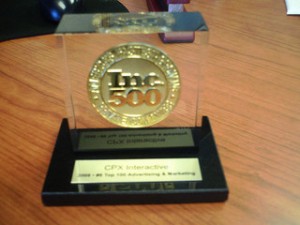 When LinkedIn bought SlideShare last year, the marketing world was ignited by the possibilities the most popular social networking site and the most popular professional presentation sharing site could do together.
When LinkedIn bought SlideShare last year, the marketing world was ignited by the possibilities the most popular social networking site and the most popular professional presentation sharing site could do together.
Many people speculated about what the acquisition would bring to LinkedIn Members. Would LinkedIn Members be able to do more with their SlideShare presentations then simply including links to them from their LinkedIn Profiles (a feature that was possible using the SlideShare add-on within LinkedIn long before the 2012 acquisition)?
This week, brand marketers took notice again when LinkedIn launched SlideShare Content Ads — the perfect blend for business-to-business brands.
SlideShare Content Ads are a part of LinkedIn’s Content Ads program which already includes ways for companies to deliver “content-rich experiences” to LinkedIn members through videos, blog posts, company news, and updates. With the launch of SlideShare Content Ads, brands will be able to target LinkedIn members and display their SlideShare presentations to those members alongside of their regular activity streams.
With a single mouse click, a member can view the entire SlideShare presentation in a pop-up without having to leave LinkedIn. A link will be included in the presentation to visit the company’s website, or the member can simply close the presentation, which brings them back to the activity they were doing before they clicked on the SlideShare Content Ad.
B-to-B brands are likely to jump at the opportunity to test SlideShare Content Ads, particularly because LinkedIn offers excellent targeting capabilities based on members’ profiles. For example, AdWeek reports that advertisers can target people based on their job titles, companies they work for, seniority, company size, and more. Furthermore, performance metrics will include, “an aggregate of non-personally identifiable profile and demographic data of members who see a campaign, including things like job function, industry, and seniority of those that view and click.” Of course, advertisers will also receive traditional digital advertising metrics such as views, average time on presentations, average time spent per slide, and so on.
According to a LinkedIn blog post, the company, “is testing more features that give brands the ability to collect leads directly from SlideShare content, and extend their reach through social gestures including ‘Likes’ and ‘Shares.'” Additional capabilities like those will surely please brand marketers.
Overall, SlideShare Content Ads are a great fit for LinkedIn, LinkedIn members, and advertisers. Getting useful content from a reliable source in front of decision makers when they need it is critical for B-to-B marketers. SlideShare Content Ads on LinkedIn, give brands an excellent opportunity to do exactly that.
The trick will be testing SlideShare Content Ads to identify the types of presentations–from design to length, content, and everything in between–that drive the best results. In other words, many companies follow the strategy of publishing every presentation they have on SlideShare, but not every presentation will be effective as a SlideShare Content Ad. Success will require experimentation, close tracking, and a shift in content marketing and advertising strategy.
Image: Nan Palmero
Lucy is Editor at Corporate Eye


